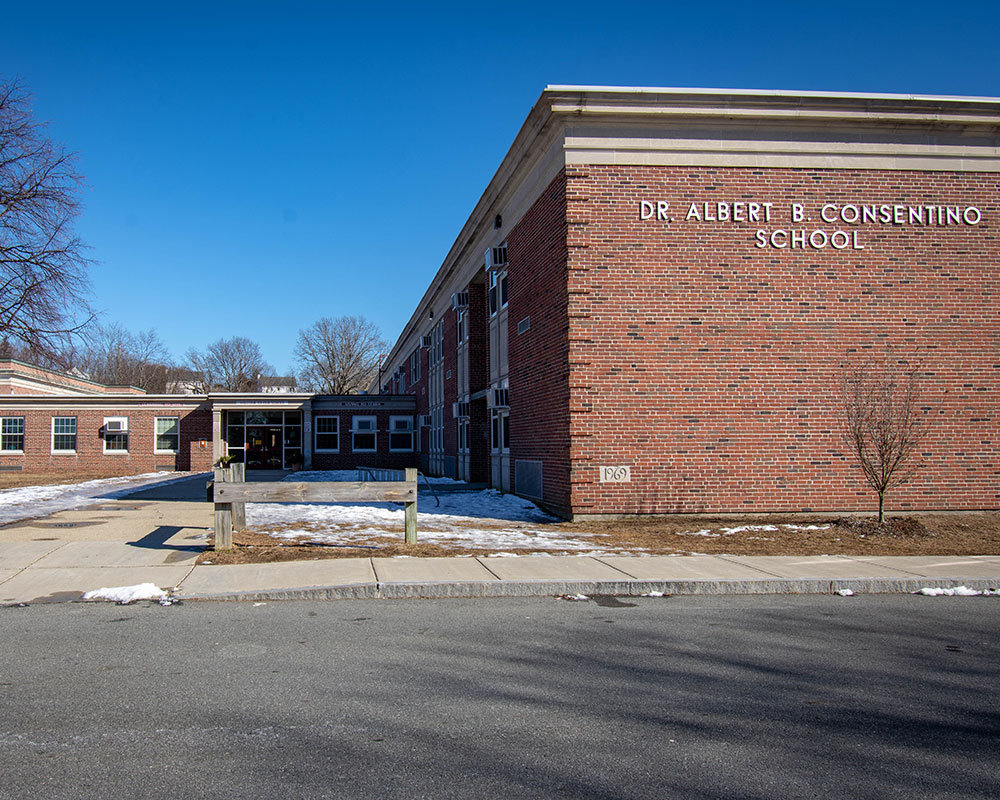
To submit election-related announcements, click on image or email [email protected]. These are the only acceptable methods of sending campaign news.
Editor’s note: Dr. Thomas Grannemann, a retired economist and former Haverhill School Committee candidate, is urging voters to support overriding the state’s tax-limiting law to pay for a new Dr. Albert B. Consentino School.
Grannemann, in the guest column below and in WHAV’s Wavelengths eNewspaper, points out his position recently garnered support from what once seemed an unlikely source. Haverhill Mayor James J. Fiorentini said last week on his YouTube channel that he plans to vote in favor of the debt exclusion to build the $160 million replacement.
“This school means so much to me that no matter how the debt exclusion vote turns out on June 6, this school is going to be going forward. I’m going to be voting for the debt exclusion. You need to decide for yourself if you want to vote for it,” the mayor said in part.
Grannemann argues the legally-temporary tax increase to pay for the school means the Consentino School will be built, “without crowding out other city services.” He notes the city’s financial projections go out only as far as 2026, but payments on the school—which would span 30 years—wouldn’t even begin until that year when construction is expected to be complete.
Haverhill voters should vote “YES” for the Consentino debt exclusion on June 6. This is a vote for financial stability that will allow the city to pay the capital expenses of the new school without crowding out other city services. Debt exclusions have been used for many years to pay for nearly every new school construction project in Massachusetts, and a debt exclusion was used to fund the new Hunking School. With inflation running high, this is not a time to try something different.
Mayor (James J.) Fiorentini said recently that he will vote for the Consentino debt exclusion. Some voters may be puzzled, however, because the mayor previously suggested that the city could pay for the Consentino School project without this measure. Is the debt exclusion needed, or not? Let’s look at the situation in the short and the long term.
In the short run, the city seems to have sufficient funds. The Hale debt payments are ending and the Consentino project debt repayment will not start until the new school (now still in planning) is completed. The mayor’s financial projections, presented to City Council in December and to the School Committee in March, do not go past 2026, the first year of repayment for a 30-year bond issue. So, until 2026 things look fine.
What happens in the long run, beyond 2026? There the financial picture without a debt exclusion looks quite grim. With inflation now above 5%, maintaining city services will require city expenditures to increase faster than the 2.5 percent annual growth in taxes allowed by the state. For a few years we can get by with funds that will accumulate after the Hale debt ends and before Consentino debt payment begins. But soon after that (somewhere about 2030), even with inflation as low as 3.5%, city finances will have become unstable—having exhausted those savings and also run up against the levy limit. The city would then need additional funds and would have no place to get them except to go back to the voters to authorize a tax override. The risk is that voters then may be reluctant to approve an override because—unlike a debt exclusion –it is a permanent increase in taxing capacity.
So, while the city could get by the next few years without a debt exclusion, the funds made available by an affirmative vote on June 6 probably will be needed long before the Consentino debt is repaid. Haverhill’s next mayor may well face annual increases in the cost of living in the range of 3 to 5%. In that case, restricting salaries and services to 2.5% annual growth would not be fair to our teachers, police, firefighters and other city workers. Nor would it be fair to our city residents, who would have to live with unnecessarily reduced city services.
The prudent path is no mystery. If we, as voters, say “YES” to a debt exclusion on June 6, we will help responsibly protect the city’s financial stability in the years ahead.
Thomas Grannemann, Ph.D., is an economist with a background in public finance. He lives in Haverhill.

